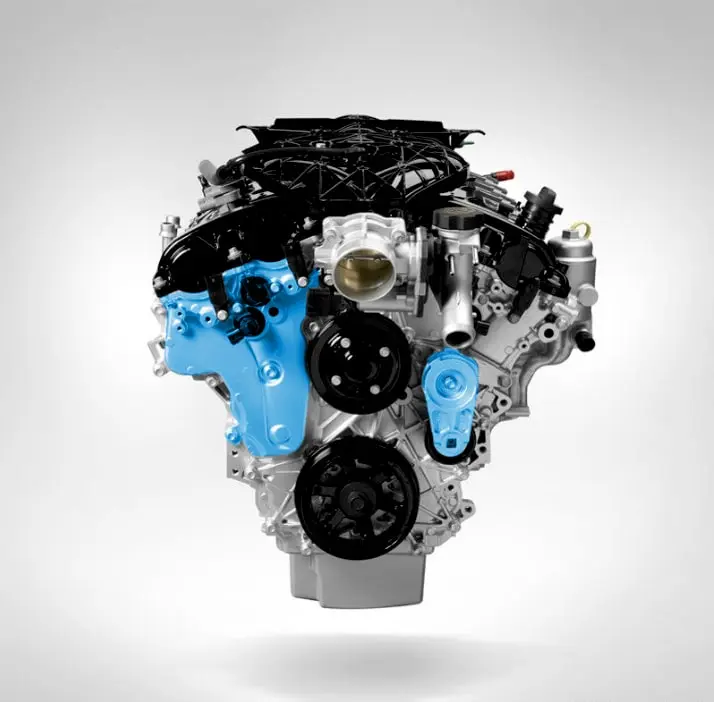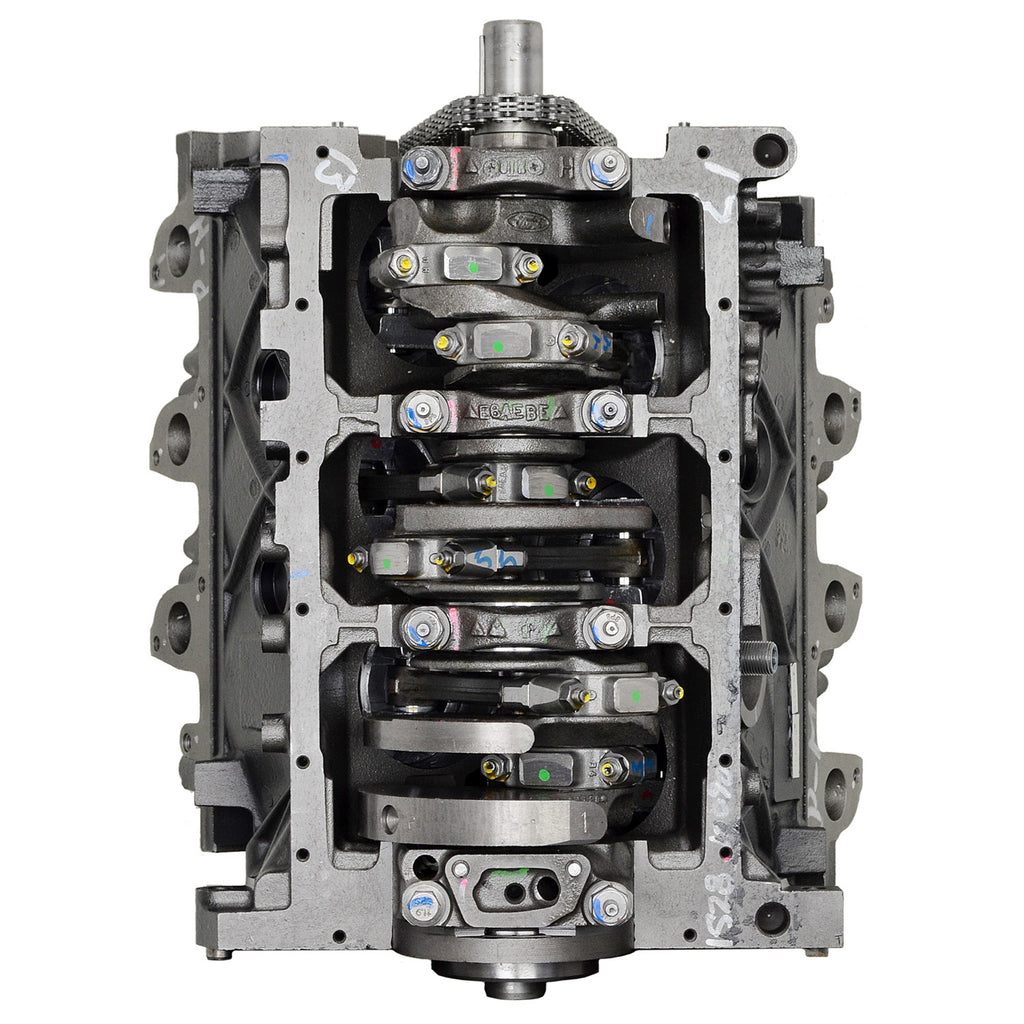Exactly How to Select the Right Cars And Truck Engine for Optimum Performance and Efficiency
Choosing the ideal vehicle engine to accomplish an optimal balance of performance and efficiency demands a nuanced understanding of different engine types and their particular attributes (2.2 ford ranger engine). Variables such as engine variation, the number of cylinders, and fuel kind play a crucial duty in identifying both power result and gas economy.
Understanding Engine Kind
When choosing an automobile, among one of the most vital components to think about is the engine type, which functions as the heart of the vehicle. The engine kind dramatically affects the cars and truck's general efficiency, longevity, and suitability for your driving requirements. There are largely three engine types to take into consideration: inner burning engines (ICE), hybrid engines, and electrical engines.
Interior combustion engines continue to be the most common, operating fuel or diesel. They are understood for their power and acceleration, making them suitable for performance-oriented cars. They might fall brief in fuel efficiency and ecological impact.
Crossbreed engines integrate an inner burning engine with an electric motor, providing a balance in between efficiency and fuel economy. They are significantly prominent for motorists seeking reduced exhausts while still supplying appropriate power.
Electric engines, powered entirely by batteries, are getting traction due to their ecological advantages and lower running expenses. They provide instant torque and a silent driving experience, making them suitable for metropolitan commuting.

Efficiency vs. Performance
Choosing the right engine type includes weighing the compromises in between efficiency and effectiveness. Performance generally refers to how well an engine can deliver power and velocity, which is frequently connected with larger variation engines or those with turbocharging capacities. These engines generally offer exciting driving experiences and fast response times, making them popular among fanatics.
On the other hand, performance concentrates on fuel economy and reduced exhausts. Smaller sized engines, especially those equipped with innovative modern technologies such as direct gas injection and variable valve timing, often tend to deliver far better miles per gallon and minimized carbon footprints. While these engines might sacrifice some power contrasted to their larger equivalents, they frequently master everyday driving circumstances where high performance is not constantly necessary.
Ultimately, the selection between efficiency and performance depend upon specific priorities. A vehicle driver that values spirited driving may prioritize a high-performance engine, while a person looking for cost-efficient commuting may lean towards an efficient choice. Comprehending these trade-offs is important for making an educated decision that aligns with your driving demands and lifestyle, guaranteeing that the picked engine type matches your assumptions for both efficiency and performance.
Key Specs to Take Into Consideration
Recognizing essential specifications is necessary for making an informed decision regarding the appropriate car engine. When choosing an engine, several crucial elements require factor to consider to ensure optimal performance and performance.
Firstly, engine displacement, measured in liters or cubic centimeters, is a critical specification. It indicates the complete quantity of the engine's cyndrical tubes and generally correlates with power output; larger variations commonly produce more power. Next off, the number of cyndrical tubes plays a considerable duty in performance characteristics. Engines with even more cyndrical tubes can give smoother operation and greater power, while smaller configurations can enhance fuel efficiency.
Additionally, the engine's setup, whether inline, V-type, or rotating, influences the total design and efficiency attributes of the car - 2.2 ford ranger engine. Turbocharging and supercharging modern technologies must also be reviewed; these boost an engine's power output without significantly boosting its size, thus boosting performance
Fuel type is another essential factor to consider, as it impacts both performance and prices. The engine's compression ratio affects efficiency and power shipment; a greater ratio generally leads to better effectiveness, yet might call for premium fuel. By meticulously examining these requirements, you can choose an engine that aligns with your efficiency and efficiency goals.
Assessing Driving Requirements
Examining driving demands is a basic action in identifying the right cars and truck engine for your way of living and use patterns. Begin by assessing your everyday driving practices, including the frequency and period of journeys. A smaller engine with good fuel effectiveness may be sufficient if your driving mainly consists of short commutes in urban environments. Conversely, if you frequently undertake long-distance journeys or require towing abilities, an extra powerful engine might be essential.
Think about the terrain you commonly navigate. Hilly or rugged landscapes might demand address an engine with higher torque for much better performance. In addition, show on passenger and freight needs; bigger families or those that transport products might take advantage of vehicles with increased power and capability.
Diesel engines typically use superior torque and fuel economic climate for much heavier automobiles, while gasoline engines may provide a smoother and quieter trip. Element in ecological considerations, as crossbreed or electrical engines can provide a much more sustainable option without sacrificing performance.
Future Fads in Engine Modern Technology
As the automobile sector continues to advance, developments in engine innovation are leading the method for more sustainable and effective driving experiences. One substantial fad is the change towards electrification, with hybrid and completely electric powertrains obtaining importance. Car manufacturers are spending greatly in battery technology to boost power density and decrease billing times, ultimately enhancing the practicality of electric lorries (EVs)
Another arising trend is the growth of hydrogen fuel cell engines. 2.2 ford ranger engine. These systems provide the possibility for like it zero-emission driving while offering refueling times equivalent to conventional gas engines. In addition, improvements in combustion modern technology, such as variable compression proportions and boosted turbocharging, are optimizing typical interior burning engines for far better efficiency and performance
Digital combination is additionally an important element of future engine modern technology. The implementation of expert system and machine knowing allows for real-time data analysis, enabling smarter engine management systems that adjust to driving problems and boost gas performance.

Verdict
To conclude, picking the proper automobile engine necessitates an extensive analysis of different factors, consisting of engine type, efficiency demands, and performance goals. By recognizing the distinctions between different engine kinds and thinking about key requirements, individuals can straighten their choices with certain driving needs. As advancements in engine innovation remain to emerge, continuing to be notified concerning future fads will certainly additionally enhance decision-making, inevitably leading to an automobile that stabilizes performance and gas performance efficiently.
Selecting the ideal automobile engine to attain an optimal equilibrium of performance and efficiency requires a nuanced understanding of visit the website different engine kinds and their details attributes. There are mainly three engine types to consider: interior burning engines (ICE), hybrid engines, and electric engines.
Efficiency normally refers to just how well an engine can supply power and velocity, which is usually linked with larger variation engines or those with turbocharging abilities. Diesel engines usually provide remarkable torque and gas economic situation for heavier vehicles, while gasoline engines may supply a smoother and quieter adventure.In verdict, picking the ideal vehicle engine requires a detailed examination of different variables, including engine type, efficiency needs, and effectiveness objectives.
Comments on “Everything You Need to Know About the 2.2 Ford Ranger Engine and Its Performance”